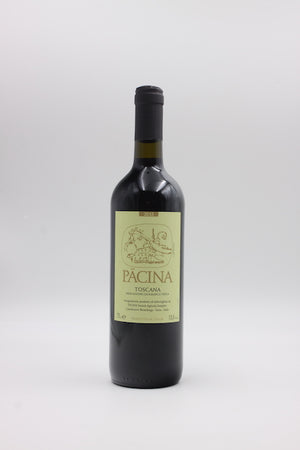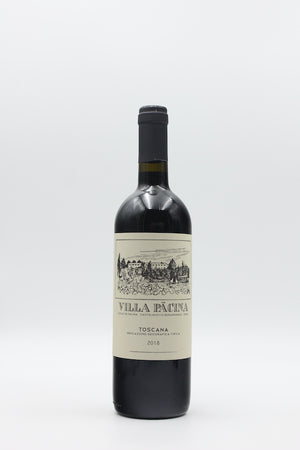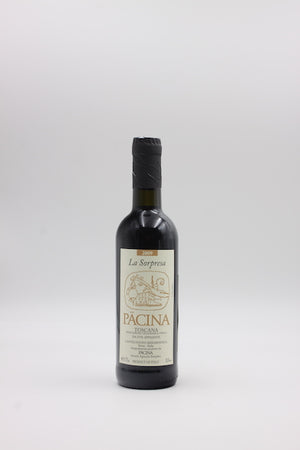- Home
- The Wines of Pacina
- Pacina: Donesco 2019


Pacina: Donesco 2019
- €19,90
Pacina “Donesco” – The Dynamic Entry into Pacina’s World
Description
The “Donesco” is the perfect red entry-level wine from Pacina, offering a vibrant and youthful alternative to the classic “Pacina.” The vines for this wine were planted between 2005 and 2008 and grow on the same sandy-clay soils (Tufo di Siena) as the estate’s older vines. This characteristic soil, also used during Siena’s traditional Palio races, defines the terroir.
At an elevation of 330 meters and facing the morning sun, 5000 vines per hectare yield 6000 kg of grapes. The wine undergoes spontaneous fermentation, ages for one year in cement tanks, is unfiltered, and has minimal sulfur (<10 mg/l).
Style
Lively, red-berry-driven, and floral, the “Donesco” stands out with its freshness and linear structure. The body is powerful, while the tannins remain youthful and gripping—a trait that will soften over time but currently provides an energetic and focused character. Striking a balance between vitality and depth, it delivers a clear and structured drinking experience.
Technical Sheet
- Grape Variety: 100% Sangiovese
- Farming: Organic
- Soil: Tufo di Siena
- Harvest: Handpicked
- Fermentation: Spontaneous, wild yeast; 3-week maceration in cement tanks
- Aging: 12 months in cement tanks
- Filtration: None
- SO₂: < 20 mg/l
- Alcohol: 15% vol
- Closure: Natural cork
- Serving Temperature: 16–18°C
- Ideal Drinking Window: Now until 2030
- Bottle Size/Price per Liter: 0.75 L / €24.87/L
Philosophy
Like all wines listed by Vinonudo, “Donesco” is made from grapes grown in organically farmed vineyards, with no use of herbicides, pesticides, or synthetic fertilizers. The natural and sustainable vineyard practices ensure authentic expression and exceptional quality.
- Auf Lager! Gewöhnlich versandfertig in 24 Stunden.
Newsletter
Who knows more, tastes more. Once a week there is news about our wines, winegrowers and events.
© 2025 vinonudo | Shopify Theme by Mile High Themes | Powered by Shopify


